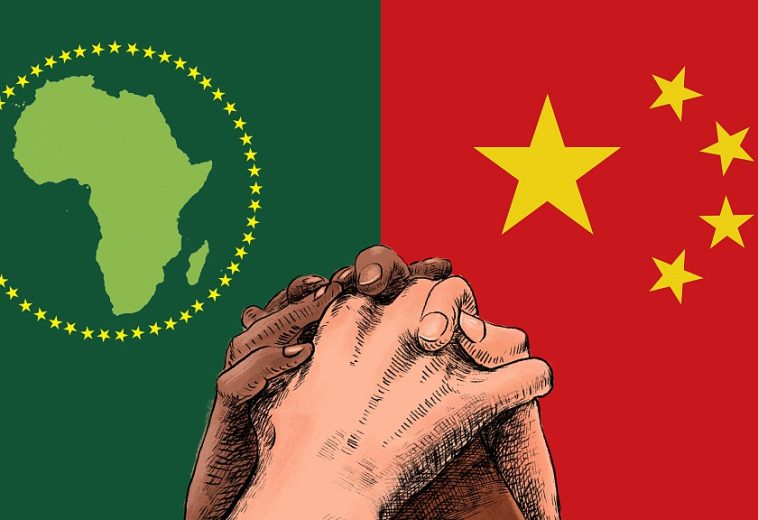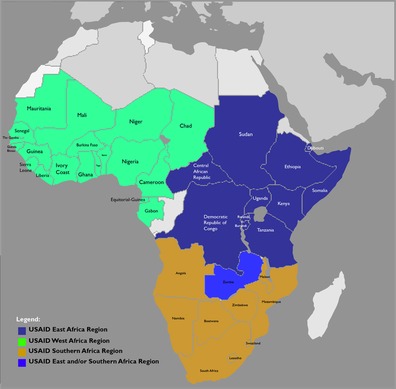On January 20, 2021, Joe Biden was sworn in as the 46th President of the United States, officially taking office and commencing his duties as President of the United States.
As a president who understands the essence of Africans to the world in the new future, his administration has a new focus for the US-Africa Partnership, intending to expand economic connections, promote democracy, and address major global concerns. This article employs the Biden administration’s actions and initiatives in support of Africa since taking office, offering light on the future prospects of this critical cooperation.
Despite the continent’s strategic importance, the United States’ (US) engagement with Sub-Saharan Africa (SSA) has been stagnant for two decades, with dwindling commerce, few visits by US presidents, and disengagement. This neglect has not gone unnoticed, as African countries have seen a rise in influence from other countries, most notably China and Russia. China, in particular, has made considerable investments in Africa, growing to become the continent’s largest trading partner and obtaining control of critical rare earth resources.
African countries offer enormous economic potential to the United States, with average GDP growth of roughly 3.5 percent and a growing middle class. Despite democratic obstacles, Africa’s young population desires more transparent governance, providing potential for progress in democracy development, a goal for President Biden. Collaboration with African countries is critical to addressing global issues like climate change and security concerns as well as building solid connections.
President Biden’s Strategy for Africa
President Biden’s strategy for Africa aims to re-establish relations with the continent by emphasising “African agency” and a more “flexible regional architecture.” This strategy, which focuses on resetting relations, listening to local voices, and widening involvement for mutual benefit, is a refreshing change from the previous administration.
The United States strategy for Sub-Saharan Africa emphasises four pillars: fostering openness and open societies; delivering democratic and security dividends; advancing pandemic recovery and economic opportunity; and supporting conservation, climate adaptation, and a just energy transition.
By agreeing to publicly leverage natural resources, resist digital authoritarianism, and enhance independent judiciaries, the United States hopes to strengthen ties with African governments and stakeholders.
Building solid relationships with African leaders is critical to the effective revitalization of the American approach in Africa. President Biden has met with African leaders via virtual summits and bilateral discussions, emphasising his administration’s commitment to strengthening diplomatic connections.
President Biden’s era has been marked by official State visits to Africa and a people-centred diplomatic approach. The administration’s diplomatic efforts have been noteworthy, with Secretary of State Antony Blinken, First Lady Jill Biden, and Vice President Kamala Harris’ visiting the continent and addressing topics ranging from counterterrorism to climate change and human rights. This would help establish strong relationships for investment opportunities and encourage constructive collaboration.
President Biden announced almost $15 billion in trade and investment pledges during a US-Africa Business Forum, with an emphasis on renewable energy, health systems, agribusiness, digital connectivity, infrastructure, and finance. The United States Trade Representative inked an agreement with the African Continental Free Trade Area to promote economic growth.
The Millennium Challenge Corporation signed $504 million in regional compacts with Benin and Niger to promote regional economic integration and commerce. The MCC also signed agreements with The Gambia, Lesotho, and Malawi for an extra $675 million, including more than $150 million for climate adaptation.
Africa’s integration into global markets, as well as its entrepreneurial spirit, present a substantial opportunity for US investment. To develop economic relations, the Biden administration explored initiatives to expand trade and investment opportunities between the United States and African states.
The United States seeks to promote economic growth and job creation in Africa by promoting private capital mobilisation. Collaboration with corporate and government leaders will focus on boosting trade and investment environments, implementing effective policies, and discovering possibilities for both African and American stakeholders.
Initiatives such as the Partnership for Global Infrastructure and Investment (PGII) and Prosper Africa provide coordinated support for businesses, including micro, small, and medium-sized firms, diaspora-owned businesses, and women-owned businesses.
Since 2021, the US has sponsored over 800 two-way trade and investment partnerships in 47 African countries, totalingmore than $18 billion in value, with $8.6 billion in investment deals from the US private sector. Trade in goods and services between the United States and Africa reached $83.6 billion in 2021, supported by initiatives such as PGII, Prosper Africa, and Power Africa. In addition, there have been discussions on extending AGOA and finding new trade deals, which are notable initiatives in this regard.
Since the beginning of Biden’s administration, the United States has invested approximately $20 billion in African health programmes. This includes money for HIV/AIDS, malaria control, family planning, reproductive health, and addressing the health, humanitarian, and economic consequences of COVID-19. These bilateral initiatives supplement the United States’ investments in multilateral institutions such as the World Health Organisation and Gavi, the Vaccine Alliance.
One notable health initiative is the US President’s Malaria Initiative (PMI), which partners with the Centres for Disease Control and Prevention (CDC) to fund health workforce programmes throughout Africa. PMI assists community health workers in 24 malaria-affected nations.
The CDC provides ongoing training and technical assistance to Africa’s CDC personnel and supports the Field Epidemiology Training Programme in response to public health challenges in the region. Through investments in health initiatives, millions of lives have been saved, and health systems have been strengthened as well. Africa can testify to falling rates of maternal and child mortality.
Furthermore, US investments in health security have resulted in progress in biosafety and biosecurity capabilities, surveillance systems, laboratory systems, and emergency preparedness across fourteen countries on the continent.
The Biden administration has demonstrated a keen interest in tackling climate change. By re-joining the Paris Agreement, the US recommitted itself to international climate cooperation, including partnerships with African countries to address environmental issues.
President Biden offered approximately $150 million at COP27 in November 2022 to advance the President’s Emergency Plan for Adaptation and Resilience (PREPARE) in Africa. Biden’s administration has pledged at least $1.1 billion to African-led conservation, climate adaptation, and a just energy transition since January 2021.
Power Africa, the Clean Tech Energy Network, the Health Electrification and Telecommunications Alliance, Growing Green Jobs for Women, and Accelerating Women’s Empowerment in Energy are just a few of the initiatives to combat climate change. USAID also plans to donate $10 million to Africa’s Climate Action Infrastructure Facility, while the US International Development Finance Corporation (DFC) has financed more than $438 million in climate-related projects in the region.
As part of its security strategy, the Biden administration worked with African governments to combat terrorism and address regional security issues. Both parties want to make the region safer and more stable by collaborating to improve peacekeeping efforts, intelligence sharing, and capacity building.
Since the beginning of Biden’s administration, the US has invested and plans to invest more than $6.5 billion in Africa to promote peace, security, democracy, human rights, and governance.
Supporting African partners’ military capacities, peacekeeping initiatives, women’s peace and security objectives, institutional capacity, gender equality, human rights, the rule of law, civil society empowerment, accountability systems, and democratic transitions and institutions are all examples of this.
The Biden-Harris Administration is now devoting almost $250 million in security support resources across the continent. The United States, through USAFRICOM and USCENTCOM, offers security assistance to African allies and partners by providing military supplies, equipment, and training.
The programmes include a wide range of topics, including human rights, women, peace, and security; maritime security; intelligence capability; health security; and logistics and maintenance capabilities. Through numerous engagements, the Department of Defence works with African partners to improve cyber security and information exchange.
The Biden administration’s approach to the US-Africa Partnership has created a foundation for future participation. President Biden has demonstrated a willingness to collaborate on common concerns by prioritising democracy, trade, diplomatic ties, climate, health, and security.
However, in order to establish a long-term and significant partnership between the United States and Africa, these initiatives must be sustained and expanded beyond Biden’s presidency.
Under Biden’s administration, the US-Africa Partnership has demonstrated a reinvigorated commitment to partnering with the continent. As Africa evolves and asserts its place on the global scene, the United States is set to play an important role in fostering the continent’s growth and development.
The Biden administration is working to create a more egalitarian, secure, and prosperous future for both African and American people through discourse, investments, and significant actions.


